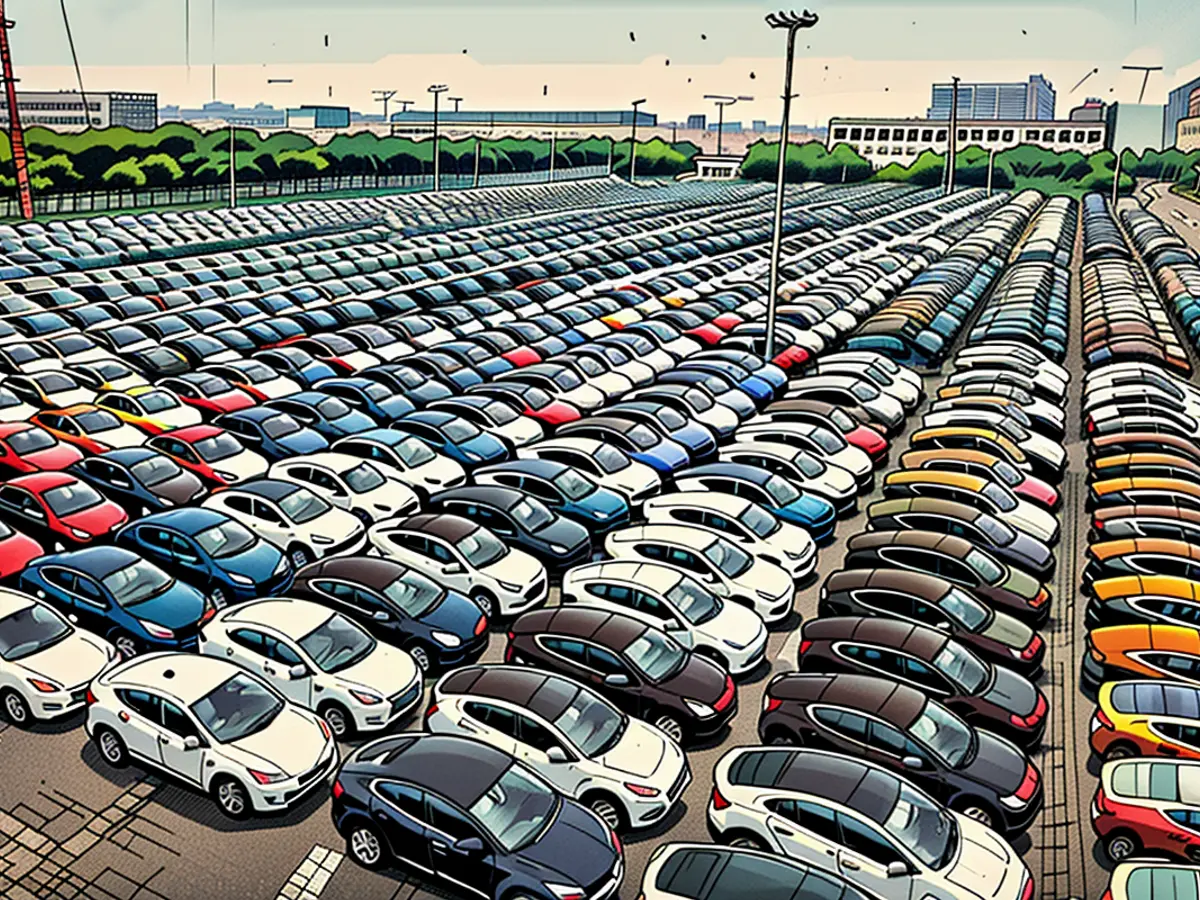Europe recently reduced customs duties on automobiles manufactured by Tesla in China.
The significant move comes after the EU increased taxes on all electric vehicles imported from China, around two months ago, justifying this action due to "unjust" government subsidies that benefited China's electric vehicle manufacturers, causing harm to European manufacturers.
Tesla, a company with a factory close to Berlin but exporting many cars it manufactures in China to Europe, had requested the EU to reconsider its initial tax rate of 20.8%.
On Tuesday, the European Commission, the EU's executive body, lowered this rate to 9%. This tax, in addition to the existing EU tax of 10% on all electric vehicle imports, still falls below the additional taxes ranging between 17% and 36.3% levied on other Chinese automakers.
The European Commission explained that the tax amount correlated with the "amount of subsidies" Tesla received in China. They carried out investigations during a visit to China and scrutinized other Chinese vehicle exporters in a similar manner, as mentioned in a statement. CNN reached out to Tesla for comment.
A senior analyst at think tank Rhodium Group, Gregor Sebastian, expressed surprise at Tesla's reduced additional tax of "only 9%." He pointed towards local government loans and subsidized batteries from Chinese battery maker CATL. However, he added that more context and methodology are required to make a strong argument.
Despite the decreased tax, Sebastian labeled it "still negative" for Tesla but could provide the company "some leeway" when compared to its major European competitor, SAIC. He suggested that SAIC will face significant difficulties.
SAIC, a Chinese state-owned car manufacturer, has been imposed with an additional 36.3% tax, while Geely, which owns Sweden's Volvo, and BYD, which is rivaling Tesla to become the world's top seller of electric vehicles, face additional taxes of 19.3% and 17%, respectively.
The European Commission mentioned that these taxes are somewhat less than the proposed taxes following a more comprehensive analysis and input from the automakers. Some Chinese companies in partnership with EU automakers could also enjoy lower taxes of 21.3%, instead of the higher 36.3% tariff due to their collaborations.
After the EU imposed initial taxes in July, Tesla boosted the price of its Model 3 in Europe by approximately 4%, or €1,500 ($1,666), citing the added taxes. Although the Model 3 remains cheaper than the BYD Seal, as per George Whitcombe, an automotive research analyst at consultancy Rho Motion. With the reduced additional tax for Tesla, the Model 3 will maintain competitiveness with other Chinese electric vehicles in Europe.
Conversely, BYD has yet to increase its prices in Europe despite the substantial additional tariff. According to Sebastian, BYD has the capacity to absorb these additional taxes without significant impact on their prices in Europe, estimating that BYD could endure an additional EU tax of up to 45%.
BYD could also boost its exports of plug-in hybrid electric vehicles as the taxes only impact battery electric vehicles. In the future, BYD could avoid taxes altogether by manufacturing cars in Turkey for the EU market, as imports from Turkey are tax-exempt.
Tesla's reduced tax rate of 9% in the EU's electric vehicle import taxes is still higher than the rates for its major European competitors, indicating a potential business disadvantage. However, the lower tax compared to the initial rate of 20.8% could help Tesla maintain competitiveness in the European market.
The European economy's decision to lower taxes for electric vehicle importers, such as Tesla, is seen as an attempt to stimulate the electric vehicle business, promoting sustainable economic growth and competitiveness in the global market.








